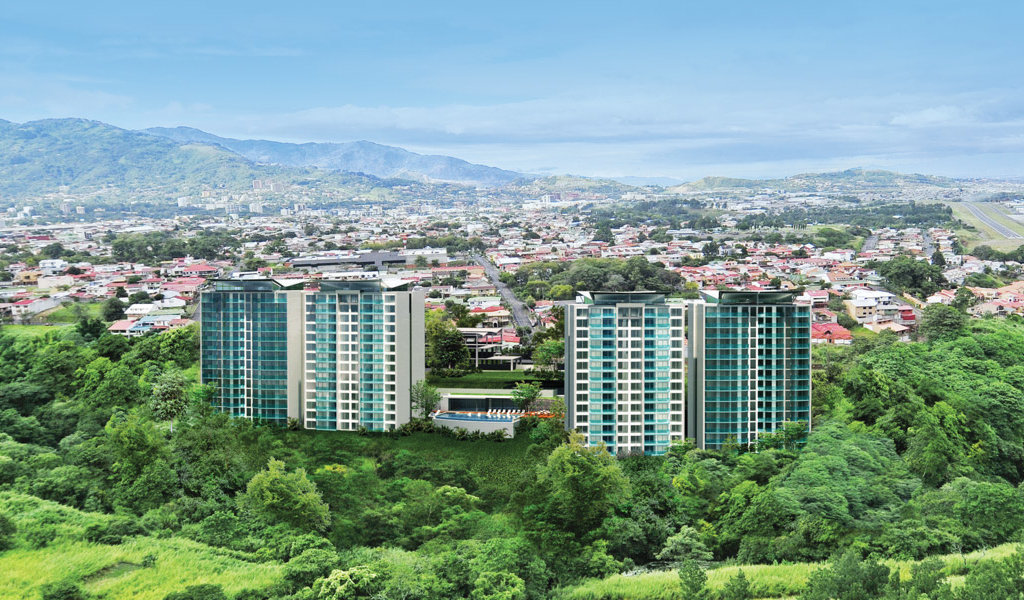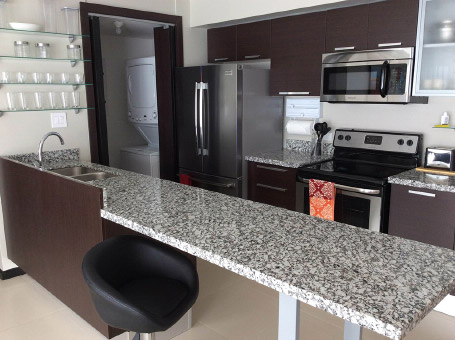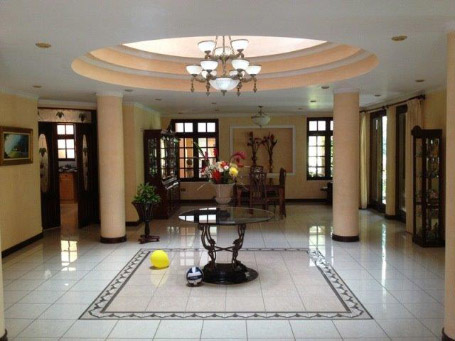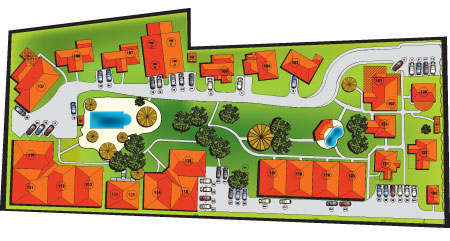Comments
1) RECOPE: here we go again. Look at the list of benefits... and these are really minor compared to the many, many excesses...
2) MINIMUM PAY RATE REVISION: not much because the government says there is deflation... but they have agreed to review the algorithm for calculation.​
3) Burger King Reopens: it failed financially and didn't want to follow BK Worldwide operating criteria... and was in debt and BKW didn't want the negative publicity of not having paid the social taxes. But what is also interesting, is the statement that CR has the 3rd highest ratio of restaurants to population in ?????
4) BOOZE ADULTERATION: maybe this is what I buy at the cheap booze store... who knows!!! But what is more interesting is the statement that typical of a police raid, no one was there... guess someone in the police department tipped them off... you think?
5) GOVERNMENT BILLS: 5 out of hundreds may come to a vote... wow!!!!!! and most are not the major issue bills which need to be dealt with. Yes, the sloth still hasn't rubbed it's stomach yet... Pura Vida!!!
1. Request to raise fuel prices provokes sharp criticism
The National Oil Refinery (RECOPE) last Friday filed a petition to raise fuel prices that, if approved, would be the fourth increase this year.
The announcement came the same day that the Constitutional Chamber of the Supreme Court, or Sala IV, ruled in favor of a request from RECOPE employees asking that costs of benefits from their collective bargaining agreement be funded through fuel prices.
RECOPE’s request and the Sala IV’s ruling sparked a general rejection among business groups, political leaders and citizen groups who say it’s unfair to pay for benefits they consider excessive.
Sala IV’s ruling now offers the refinery the opportunity to file for another price hike request in the near future, as the Public Services Regulatory Authority (ARESEP) last year prevented RECOPE from including employee benefits in its price-setting requests.
RECOPE’s newest petition is asking for increases of ¢84 in the per-liter price of super gasoline, of ¢76 for plus gasoline and of ¢70 for diesel.
If approved the per-liter price of super will exceed ¢600, rising from ¢518 to ¢602 ($0.95 to $1.10). Plus gasoline would go from ¢498 to ¢568 ($0.91 to $1.04) and diesel from ¢380 to ¢450 ($0.69 to $0.82).
RECOPE justified its request based on variations in international fuel prices and as compensation for changes in import costs recorded between March and April.
Challenges to the ruling
Sala IV in a news release on Tuesday reported that it admitted a complaint against its ruling filed by Libertarian Movement lawmaker Otto Guevara.
Guevara’s complaint argues that various articles of RECOPE’s collective agreement are unconstitutional, as they violate “principles of legality, reasonableness, proportionality and balance of its budget.”
The lawmaker also asked RECOPE’s executive president, Sara Salazar, to disclose the terms and costs of current negotiations with the workers’ union to update their collective agreement.
Citizen group Asociación de Consumidores de Costa Rica (Costa Rican Consumers Association) announced that it will file another complaint before Sala IV next week.
The group said its complaint will ask justices to stand for consumers’ rights and rule that costs of a public service can not be used to finance collective agreements.
Christian Democratic Alliance legislator Mario Redondo on Monday said he will challenge the Sala IV’s ruling as he believes justices “made a mistake.”
Redondo said the ruling “is seriously hurting Ticos’ pockets” and claimed that “RECOPE’s collective agreement is one of the most abusive in the country.” The lawmaker has yet to announce when he will file the claim.
Protests against RECOPE’s request also came from the business sector.Franco Arturo Pacheco, president of Costa Rica’s Union of Private-Sector Chambers and Associations (UCCAEP), said earlier this week that it will submit another complaint before the Sala IV.
Pacheco said UCCAEP leaders and associates will file a complaint “against privileges enjoyed only by a small group of public employees and that are affecting Costa Rica’s competitiveness.”
Leaders of the Costa Rican Chamber of Industries (CICR), which brings together a large group of private sector companies, in a news release agreed with UCCAEP’s statements that Sala IV’s ruling will affect the country’s competitiveness.
CICR deputy director Carlos Montenegro said justices’ ruling left them speechless, adding that “it’s not fair that 4.8 million people and 41,000 companies that buy fuel are forced to pay for privileges of RECOPE’s 1,742 employees.”
A citizen iniciative called “Ya no más RECOPE” (No more RECOPE) is calling for a march against the refinery, scheduled at 9 a.m. on June 25 at La Sabana Park, west of downtown San José.
Demonstrators will march through the capital’s Second Avenue until reaching the Legislative Assembly, where group leaders will deliver lawmakers a petition to take action against RECOPE’s price hike request and its workers’ benefits.
The group on its Facebook profile said it’s up to the citizens to take actions to curb RECOPE’s abuses, as “President Luis Guillermo Solís has turned his back to the people.”
Members also claim it is unfair to fund extra-salary benefits that “allow RECOPE to pay their janitors and drivers monthly salaries up to ¢3 million ($5,500), while other workers barely make enough to survive.”
Controversial benefits
RECOPE’s workers union filed the complaint before Sala IV last year following an ARESEP ruling stating that costs for extra-salary benefits cannot be bundled into costs affecting the calculation of fuel prices.
According to the national budget, benefits of RECOPE’s collective agreement in 2015 represented expenses for ¢22,720 million ($41.5 million), or 20 percent of the agency’s operating costs.
The refinery has maintained that the terms of its collective agreement are confidential as they are currently under renegotiation, but various media outlets made several of them public.
Last year RECOPE granted its employees some twenty economic benefits and perks ranging from extra-salary bonuses to financial aid.
Among them employees receive bonuses for the birth of a child, for buying school supplies and for paying for day care services.
Despite having health coverage by the Social Security System, employees get bonuses to pay for private medical treatments, medicine and dental services.
The company also subsidizes employee’s meals at the cafeteria and the workers’ union gets funds to pay for social, sports and cultural activities and parties.
Those payments last year prompted President Luis Guillermo Solís to issue a directive banning all public agencies from using taxpayer funds to hold recreational events for their employees.
The presidential directive followed a wave of outrage on social media after RECOPE published a document seeking a ¢6.8 million ($12,600) public bid to organize a Christmas party for a group of its employees.
The most significant expenses are bonuses for every year of service, as well as others based on merit and work performance.
The cost of RECOPE’s collective agreement for 2016 is of ¢23,000 million ($41.9 million), according to the national budget.
2. 0.5% pay increase approved for minimum-wage workers in private sector
Private-sector workers making minimum wage will receive a 0.5 percent hike starting July 1.
The National Wages Council, which includes representatives from the government, employers chambers and labor unions, agreed on the figure Wednesday evening after a negotiation that extended for over three hours at the Labor Ministry.
Labor Minister Carlos Alvarado proposed the agreed-upon figure, which represents an increase of â‚¡500 ($0.91) per every â‚¡100,000 ($182) of monthly salary.
According to Costa Rica’s labor laws the wage hike is only mandatory for workers who receive the minimum wage at their job category.
In addition, the Wages Council approved a 2 percent increase for monthly salaries of domestic workers.
Council members unanimously passed the government’s proposal of 0.5 percent, after rejecting various workers’ unions requests ranging from 2.13 to 3.5 percent.
Employers’ proposal of 0 percent also was rejected. Employers’ chambers claimed there were no grounds to increase wages as inflation recorded in the last 12 months was -0.43 percent, “meaning real wages actually grew during that period,” they said.
Council President Dennis Cabezas, who represents workers’ unions, noted that the approved hike is the lowest of the past three years.
“People feel that macroeconomic indicators do not keep a correct relation with their daily expenses,” Cabezas said.
He added that it is contradictory that officials report a negative inflation figure but people feel their salary buys fewer things every month.
The National Workers Union stated in a public release that the approved increase is insufficient and will have a negative impact on the country’s working class.
Employers’ chambers leaders responded by saying they approved the wage hike even though the calculation formula supported their proposal of not doing any increase.
Franco Pacheco, leader of the Union of Private-Sector Chambers and Associations, said he accepted the government’s proposal mostly to promote dialogue and reach agreements between the sectors.
Last year the Wages Council approved a 0.67 percent hike for the private sector that went into effect in January.
Changes in wage calculation formula
Minister Alvarado said that the National Wages Council also approved a proposal to review the calculation formula used to set wage increases, as the country’s economic context has changed.
Alvarado said council members unanimously approved the review, which should be completed within three months.
Council members use a calculation formula that takes into account the projected inflation for the next semester, plus a compensatory adjustment consisting of the difference between that projected inflation and the inflation recorded the previous semester.
According to the National Statistics and Census Institute, private-sector workers represent 85 percent of the country’s total workforce, estimated at 2.06 million people.
Minimum wage in Costa Rica varies by profession and job category. See the full list of minimum wages in force for the first semester of this year here.
3. Burger King reopens Costa Rica operations
Burger King is back in Costa Rica just eight months after the former franchisee closed its operations here due to financial woes. The first restaurant of the U.S. fast food chain opened Wednesday in front of Parque de la Paz, south of downtown San José.
Salvadoran business group JV de Centroamérica S.A., the new owner of the franchise, has announced plans to open 10 more restaurants in the coming months. The group will operate in Costa Rica under the corporation Alimentos Exclusivos BK Costa Rica. The company confirmed two more restaurants will open in the next two weeks in Guadalupe and Tibás, north of the capital.
JV de Centroamérica S.A. also operates Juan Valdez coffee shops here and the Burger King franchise in El Salvador.
In a news release, the company said it had hired 85 employees and expected to end the year with some 100 employees. Some 70 percent of those employees had previously worked at BK restaurants, the company reported.
Burger King Costa Rica: Chapter 1
This is the second attempt to successfully establish the Burger King franchise in Costa Rica. Burger King Corporation U.S. (BKC) closed its 29 restaurants in Costa Rica last Oct. 5 and dismissed all 434 employees. Former franchisee BK Costa Rica attributed the decision to “a disagreement on how to run the business with BKC US, which also is a shareholder of local operations.”
The parent company said in a press release at the time that BK Costa Rica was operating the brand illegally since its contract had expired in September 2014. The corporation also said it looked forward to returning to Costa Rica soon.
Besides failing to pay franchise rights, the first BK Costa Rica’s closure followed problems with liquidity and accumulated debt, including more than â‚¡300 million (some $550,000) owed in taxes and social security payments.
The Foreign Trade Ministry tried unsuccessfully at the time to mediate between the parent company and BK Costa Rica to prevent the closure. After the franchise’s exit, other fast food companies, including McDonald’s and KFC, bought several of the Burger King locations.
BK Costa Rica wasn’t the only fast food franchise to close shop last year: In January, Wendy’s closed its local operations and dismissed 110 employees. In a news release posted at the time on its Facebook page, the company blamed the excess of fast food restaurants in the country, which spiked dramatically in the last five years.
“Currently, Costa Rica is the third country in the world with more restaurants per square kilometer,” the company said at the time. Wendy’s had been in Costa Rica for eight years.
Sector recovery
The return of Burger King indicates a recovery of the fast food market following a spate of closures. Besides Wendy’s, Domino’s Pizza and Bagelmen’s also exited Costa Rica in recent years.
According to daily La Nación, KFC plans to open three to five restaurants a year over the next five years.
McDonald’s opened two new locations this year, in Heredia and Cartago provinces, bringing its presence in the country to more than 100 locations.
QSR International group, which operates 28 fast food restaurants here, announced plans to open three new locations of Quiznos and one of Teriyaki Experience in the next two months. The company also manages the local franchise of SmashBurger.
According to data from the National Franchise Center (CENAF), part of the Costa Rican Chamber of Commerce, there were 217 international franchises here at the end of 2015, representing 78 percent of all franchises in the country. A quarter of those foreign franchises are in the food sector.
There are 61 Tico franchises in Costa Rica, almost 60 percent of them in the food sector.
4. Here's Johnny, aged briefly in plastic in Dos Ríos
By the A.M. Costa Rica staff
Sometimes that shot of Johnny Walker just doesn’t taste right. Some expats probably will blame their own mood or perhaps the lingering effects of a snack or dinner.
Then there is the possibility that the bottle is not really Johnny Walker despite what the label says.
There is, of course, the bartender’s old trick of refilling bottles of top-shelf alcoholic beverages with less expensive brands. That’s why many of the premium brand bottles have internal plastic security stoppers to prevent refilling.
A.M. Costa Rica reporters have been looking into suspicious alcohol for at least five years. The advertising staff gave liter bottles of Johnny Walker scotch to customers one Christmas. The boxes of bottles came from a reputable retail outlet.
But once the bottles were opened, the Johnny Walker just did not taste right. The newspaper staff has been collecting complaints since then from readers, but without analyses from foreign laboratories there was little that could be published.
Now the veil has been ripped for the country’s fake alcohol racket.
Tax officials and members of a host of law enforcement agencies raided four warehouses in San Francisco de Dos Ríos Tuesday and found an alcohol mixing and bottling plant.
The raiding parties found legitimate bottles of well-known brands, probably from the Deposito Libre in Golfito or from some smuggler’s truck. But they also found 20,000 liters of bulk alcohol, 15,790 bottles of adulterated liquor, 36,000 empty bottles and 146 rolls of counterfeit labels of top brands.
They also found 131,000 of those plastic security devices.
The operation appears to have been in the business of mixing top-shelf alcohol with much cheaper liquids, bottling the result and passing it off as genuine. And the cheap counterfeit alcohol easily entered the legitimate wholesale stream to end up on the shelves of retailers and in local bars and restaurants.
The Policía de Control Fiscal said they had received a tip about the operation. Participating were prosecutors from the Ministerio Público, Judicial Investigating Organization agents, members of the Dirección de Inteligencia y Seguridad and workers from the Ministerio de Salud and the Fabrica Nacional de Licores, the state monopoly.
As is usually the case with police raids, no suspects were there.
This was a major strike at the fake alcohol racket that markets top-shelf fakes. In the past a few bootleggers have been raided. They usually are small operations turning out mislabeled guaro.
5. Government officials say they are pleased with advance of five bills
By the A.M. Costa Rica staff
The central government is expressing pleasure because five bills have advanced in the legislature. But they are not the tax bills Casa Presidencial so desperately seeks.
Three of the bills address technical changes in pensions.
There also is a revision of anti-drug legislation that touches on money laundering and financing of terrorism. This is No. 19.909. Another bill would reform certain sections of the criminal code against illicit enrichment by public officials and public employees. This is No. 19.904.
Lawmakers have voted to bring these measures out of committee for discussion and possible action on the assembly floor.
Among the pension measures is one that eliminates the automatic annual increase in pensions for lawmakers who served before 1990. The law now gives them automatic annual raises of 30 percent.











